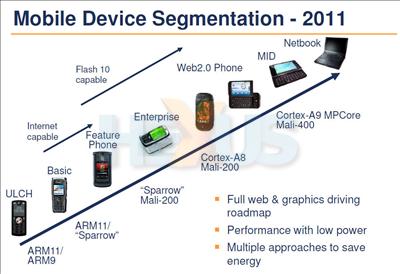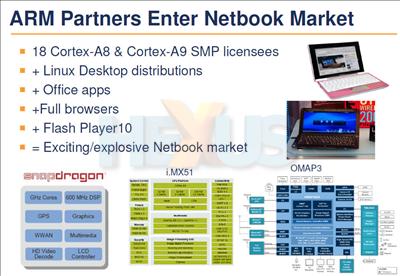The dawn of the smartbook?
While the Corex A9 scales all the way up to netbook uses, Coombs also mentioned the ‘Sparrow' design, which also scales up to four cores and which Coombes hopes will be ubiquitous in mainstream mobile phones.
"The Cortex A9 should be common in smartphones by 2011, but we want to see the Cortex A family in lower price-point products too - not just in millions but billions of devices," said Coombs.
Back to the larger form-factor battle, Coombs likes what ARM partner Qualcomm is doing. "Qualcomm is promoting the smartbook as opposed to the netbook. Smartbooks are the evolution of the smartphone into a larger form factor, which offers things like automatic syncing with a PC, great games, etc."
It looks like the main distinction between a smartbook and a netbook is constant connectivity. Using lower power processors allows it to be powered up all the time, just as we expect of a mobile phone. "The smartbook is a great consumer concept," said Coombs. "It's always on, offers multiple connectivity, syncing in the background and form-factor flexibility."
We concluded by asking Coombs if he had anything else he wanted to share with HEXUS readers. "I think June's going to be a hot month for product launches," he said. "There are a large number of OEMs making ARM products this year and going forward. We're the market leaders."















